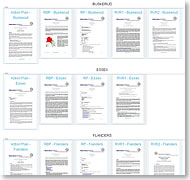FR - Lesotho
| Attachment | Size |
|---|---|
| Final_Report-Lesotho.pdf | 56.88 KB |
Embedded Scribd iPaper - Requires Javascript and Flash Player
PASCAL Report to Lesotho PURE Work 2009-2010
A. Profile and context of the region – distinctive and unique features Key features of Lesotho include: the legacy of colonialism, the country’s relationship with South Africa, a period of only twelve years of relatively stable government and the current global financial crisis. Poverty, HIV/AIDS and other health issues continue to dominate development priorities, but entrepreneurialism and self help are key policy drivers. There is a devolved local government political system as well as a system of traditional chieftainship throughout the country which is still 60% rural. Tourism, textiles and agriculture are the main forms of income generation, along with a substantial informal economy. Water is sold to South Africa and there are now a number of dams in the country, one of which is still under construction. Tourism still requires development to maximise its potential. The university itself has been going through a deep financial crisis and temporary leadership in the most senior positions. This has hindered any activity in relation to PURE.
B. Formal and informal means of engagement The PURE project has concentrated mainly on encouraging specific, university led projects in order to create awareness in the university. Some publicity in the country has been undertaken through radio and TV but again much more is needed. The associated ITMUA research project has been the main structure of communication through the university and with civil society and ministries. Some progress has been made in this direction in terms of awareness and interest, but it is slow. The majority of people (ministries and university staff) are discouraged from taking part in work that is not remunerated. In spite of this, those that have been involved at local community level and in the university have appreciated the university’s visibility in the community. There is potential for more work but there is a great need for university ownership of the process and wider interest by the public. More publicity and marketing of PURE will facilitate this process. Currently the other tertiary institutions in Lesotho have not been involved in PURE, since the first meeting in 2009, except through specific project consultations. It is time for a new direction that is university led at senior management level, with a clear
PASCAL Report to Lesotho
2
vision for how the university wants to proceed with its community /regional engagement work.
C. Benefits and prospective future gains from international networking via PURE, including benchmarking to monitor and enhance progress The ITMUA project, led by NUL, has produced a shorter version of the PURE benchmarking tools, concentrating on sustainable development, culture and community development. A small committee of staff within the university approved the adapted benchmarking tools and it was agreed that most community service activity in the university was individually led, there were some projects at departmental level, but most of these were research (and therefore funded) projects. The ITMUA project has created an opportunity for networking across Malawi, Botswana and Calabar in Nigeria. These universities have followed similar consultations and strategies for community engagement, with similar observations – the need for more marketing, dissemination of university activities, more consultation with communities and a central coordinating body within the university itself. During 2011 the ITMUA project will be producing policy briefing papers (according to its funder, DFID, guidelines) and an e-book detailing the outcomes of the case studies, with a discussion of the various forms of community service/engagement that seem to take place within the Southern Africa region.
D. How the region can get more value from engagement with its higher education institutions; and how the higher education institutions can get more value from engagement with the region This aspect of PURE still has to be developed. There is evidence of mutual learning (through research findings from the ITMUA project) and potential for enhancing university teaching and research through more engagement with the region (country). But to engage effectively each must work out what arrangements hinder and what help fruitful engagement. The lead institution at NUL that is interested in PURE is the Institute of Extra Mural Studies. This institute would like to explore in more depth how it can work more closely with government departments and community organisations over the next twelve months. The ITMUA project will be holding a final stakeholder meeting in February where external agencies will be invited to take part and discuss a way forward. This could provide a platform for PURE to take more ambitious steps at consultation and marketing of its objectives.
PASCAL Report to Lesotho
3
A university policy of reward systems, incentives and career benefits could steer staff and groups in all areas of teaching and scholarship into engagement clearly supported by senior management. This includes applied research, practical consultancy and professional short-course updating. A centralised, dedicated funding pot would greatly assist the university in continuing this work; government interest in funding tertiary institutions.
PASCAL Report to Lesotho PURE Work 2009-2010
A. Profile and context of the region – distinctive and unique features Key features of Lesotho include: the legacy of colonialism, the country’s relationship with South Africa, a period of only twelve years of relatively stable government and the current global financial crisis. Poverty, HIV/AIDS and other health issues continue to dominate development priorities, but entrepreneurialism and self help are key policy drivers. There is a devolved local government political system as well as a system of traditional chieftainship throughout the country which is still 60% rural. Tourism, textiles and agriculture are the main forms of income generation, along with a substantial informal economy. Water is sold to South Africa and there are now a number of dams in the country, one of which is still under construction. Tourism still requires development to maximise its potential. The university itself has been going through a deep financial crisis and temporary leadership in the most senior positions. This has hindered any activity in relation to PURE.
B. Formal and informal means of engagement The PURE project has concentrated mainly on encouraging specific, university led projects in order to create awareness in the university. Some publicity in the country has been undertaken through radio and TV but again much more is needed. The associated ITMUA research project has been the main structure of communication through the university and with civil society and ministries. Some progress has been made in this direction in terms of awareness and interest, but it is slow. The majority of people (ministries and university staff) are discouraged from taking part in work that is not remunerated. In spite of this, those that have been involved at local community level and in the university have appreciated the university’s visibility in the community. There is potential for more work but there is a great need for university ownership of the process and wider interest by the public. More publicity and marketing of PURE will facilitate this process. Currently the other tertiary institutions in Lesotho have not been involved in PURE, since the first meeting in 2009, except through specific project consultations. It is time for a new direction that is university led at senior management level, with a clear
PASCAL Report to Lesotho
2
vision for how the university wants to proceed with its community /regional engagement work.
C. Benefits and prospective future gains from international networking via PURE, including benchmarking to monitor and enhance progress The ITMUA project, led by NUL, has produced a shorter version of the PURE benchmarking tools, concentrating on sustainable development, culture and community development. A small committee of staff within the university approved the adapted benchmarking tools and it was agreed that most community service activity in the university was individually led, there were some projects at departmental level, but most of these were research (and therefore funded) projects. The ITMUA project has created an opportunity for networking across Malawi, Botswana and Calabar in Nigeria. These universities have followed similar consultations and strategies for community engagement, with similar observations – the need for more marketing, dissemination of university activities, more consultation with communities and a central coordinating body within the university itself. During 2011 the ITMUA project will be producing policy briefing papers (according to its funder, DFID, guidelines) and an e-book detailing the outcomes of the case studies, with a discussion of the various forms of community service/engagement that seem to take place within the Southern Africa region.
D. How the region can get more value from engagement with its higher education institutions; and how the higher education institutions can get more value from engagement with the region This aspect of PURE still has to be developed. There is evidence of mutual learning (through research findings from the ITMUA project) and potential for enhancing university teaching and research through more engagement with the region (country). But to engage effectively each must work out what arrangements hinder and what help fruitful engagement. The lead institution at NUL that is interested in PURE is the Institute of Extra Mural Studies. This institute would like to explore in more depth how it can work more closely with government departments and community organisations over the next twelve months. The ITMUA project will be holding a final stakeholder meeting in February where external agencies will be invited to take part and discuss a way forward. This could provide a platform for PURE to take more ambitious steps at consultation and marketing of its objectives.
PASCAL Report to Lesotho
3
A university policy of reward systems, incentives and career benefits could steer staff and groups in all areas of teaching and scholarship into engagement clearly supported by senior management. This includes applied research, practical consultancy and professional short-course updating. A centralised, dedicated funding pot would greatly assist the university in continuing this work; government interest in funding tertiary institutions.








